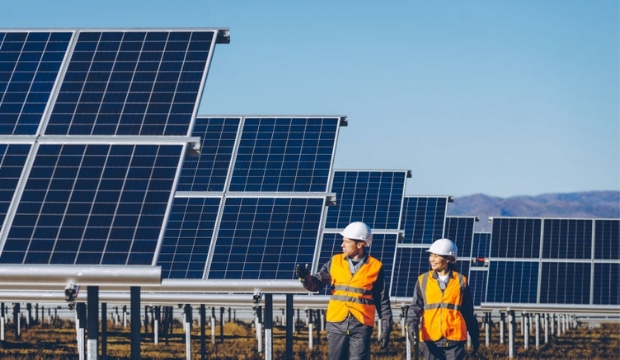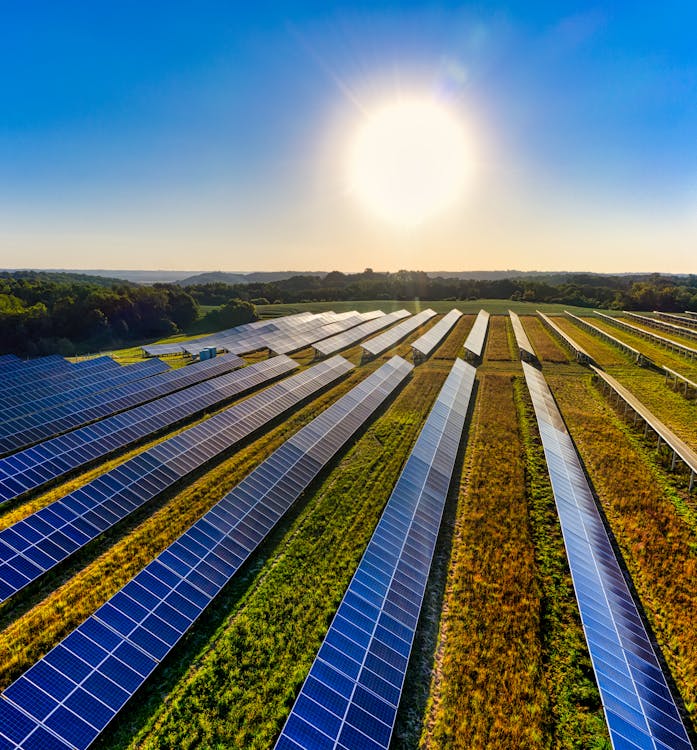Top Solar Providers PA: Our Company Concentrates On The Installation And Management Of Photovoltaic Energy Systems
History and Advancement of Photovoltaic Panel Companies
The creation of photovoltaic panel business can be traced back to the 1800s when Alexandre Edmond Becquerel found the photovoltaic impact. Would he have imagined how his discovery would revolutionize the way we harness energy?
Early Starts

In 1954, Bell Labs developed the very first useful photovoltaic cell. This marked a considerable milestone in the history of solar power. They were initially used to power area satellites, but who understood this was just the start?
Advancement and Growth
- In the 1970s, an energy crisis caused increased interest in sustainable energy sources, consisting of solar energy.
- By the 1990s, developments in technology and increasing environmental awareness resulted in the development of photovoltaic panel business internationally.
A New Era
As we went into the 21st century, the solar market saw an exponential development. The demand for clean and eco-friendly energy brought about a brand-new age in the photovoltaic panel industry.
Interesting Realities
- The world's first solar power station was integrated in 1982 in Hisperia, California.
- By 2019, solar power had actually become the world's fastest-growing source of power.
Undoubtedly, the journey of solar panel business has been remarkable, hasn't it? The future holds tremendous potential, with constant improvements leading the way for a sustainable future. Can we visualize a world powered completely by solar energy?
Moving on
Today, photovoltaic panel companies continue to innovate, pursuing more efficient and affordable services. The advancement of solar power has actually come a long way, and yet, the journey has actually simply begun.
The Core of Photovoltaic Panel Production
Ever wonder what enters into producing those glossy, sun-loving solar panels? The procedure is as excellent as the end product (Affordable Solar Panels PA). High-purity silicon, the main component in solar panels, undergoes numerous changes to guarantee its performance and sturdiness
From Sand to Silicon
Crystalline silicon, the backbone of a lot of photovoltaic panels, stems from easy sand. It's an interesting journey, isn't it? The sand goes through a high-temperature reaction with carbon to form silicon. This isn't just any silicon. The silicon used in solar panels is "solar-grade," with a purity of 99.9999%. It's this purity that allows the panels to successfully convert sunlight into power.
Ingot Formation
When the silicon is pure enough, it's time to form ingots. Photo a big, round block of solid silicon. How is this achieved? Through a process called Czochralski procedure, where the silicon is melted and then slowly recrystallized. It's a sluggish dance of science, resulting in a solid item that is nearly as pure as the raw silicon itself.
Slicing into Wafers
The ingots are then sliced into wafer-thin pieces, like slicing a loaf of bread. Each piece is a possible solar battery, waiting to harness the power of the sun. Did you understand that the silicon wafers are just about 200 micrometers thick? That's about half the density of a human hair! The procedure requires precision and patience, but the outcome is a set of wafers all set to be developed into solar cells.
Developing Solar Cells
With the wafer ready, it's time for the magic to occur. The silicon wafer is 'doped' with other aspects like phosphorous and boron to produce an internal electrical field. It's this field that makes it possible for the conversion of sunlight into electrical power. Complex, isn't it?
Assembly and Quality Assurance
Solar battery are like puzzle pieces that come together to form a photovoltaic panel. The cells are soldered together in a grid-like pattern, then covered with a protective layer of glass. The final action includes rigorous quality assurance checks. It's important that every solar panel performs at its peak, would not you concur?
Insider Idea
Constantly remember that even the most efficiently made photovoltaic panel can lose effectiveness due to dirt and debris accumulation. Regular cleaning can substantially improve your panels' performance.
Comprehending the Ecological Effect of Photovoltaic Panel Business
Ever pondered the ecological footprint of a solar panel company? Green technology, such as solar, has changed our energy landscape, but what about the behind-the-scenes impact?
The Manufacturing Process: A Double-Edged Sword
The production procedure for solar panels requires a significant quantity of energy. This process, called 'em bodied energy', can be viewed as a type of 'energy debt'. It's a little like obtaining today's sunshine to power tomorrow's energy requirements. But worry not, the energy repayment time is often shorter than you 'd think!
- The energy payback period for photovoltaic panels is typically 1-4 years.
- After this duration, the energy produced is essentially carbon-free.

Life After Decommission
And what happens when a photovoltaic panel reaches the end of its lifespan? Can it just be tossed into the garbage? No, that would not be extremely green, now, would it?
A practical option is recycling. While photovoltaic panel recycling is still in its infancy, it holds a world of capacity. Recycling not just here keeps materials out of garbage dumps however likewise reduces the requirement for new basic materials.
Accountable Sourcing: More Than A Buzzword
Where does the silicon originated from, you ask? Sadly, the market's need for silicon and rare minerals can result in devastating mining practices. Responsible sourcing is therefore crucial to decrease damaging environmental impacts.
Decreased Carbon Emissions: The Larger Image
Let's not forget the larger photo: solar power substantially lowers carbon emissions. Once set up, photovoltaic panels generate clean, renewable resource, balancing out their preliminary production footprint.
Simply put, the environmental impact of solar panel business is an intricate issue. Nevertheless, with responsible practices, the guarantee of a cleaner, greener future is well within our grasp.

Financial Efficiency and Market Share of Photovoltaic Panel Business
Ever questioned why some solar panel business - Solar Panels Pennsylvania beat others in the market? What sets them apart? The key lies in their financial performance and market share
Financial Performance: A Vital Indicator
Financial efficiency plays a pivotal role in the success of any service. For photovoltaic panel business, it's no various. Strong monetary efficiency allows these companies to buy innovative innovation, research study, and development, thereby producing top quality, effective solar panels.
How do they achieve this? With a focus on expense efficiency and tactical financial investments. Companies that handle to decrease production costs without jeopardizing on quality tend to fare much better in the market.
Market Share: A Measure of Success
Market share, on the other hand, is a direct reflection of a company's popularity among customers. A high market share indicates more property owners are selecting their photovoltaic panels over rivals.
So, what's the secret recipe for gaining a larger market share? It comes down to consumer satisfaction and brand reputation. Companies that focus on customer needs and keep a favorable brand name image are most likely to record a bigger share of the marketplace.
- Consumer Complete satisfaction: Photovoltaic panel companies that deliver trustworthy items and remarkable customer care tend to have greater client satisfaction rates.
- Brand Credibility: A strong brand track record is developed over time through consistent shipment of quality product or services.
Financial Efficiency and Market Share: The Symbiotic Relationship
Interestingly, the relationship in between financial efficiency and market share is not one-sided. They feed off each other. A strong monetary efficiency can increase a business's market share, while a high market share can improve monetary performance.
As a solar panel company, stabilizing these 2 aspects is important for long-term success. A company that ignores either of them might discover it tough to maintain its position in the competitive solar market.
The Takeaway
What does all this mean for you? Whether you're a property owner wanting to install photovoltaic panels or a financier considering the solar market, understanding the financial efficiency and market share of photovoltaic panel business is essential. They are key signs of a business's health and capacity for future development.